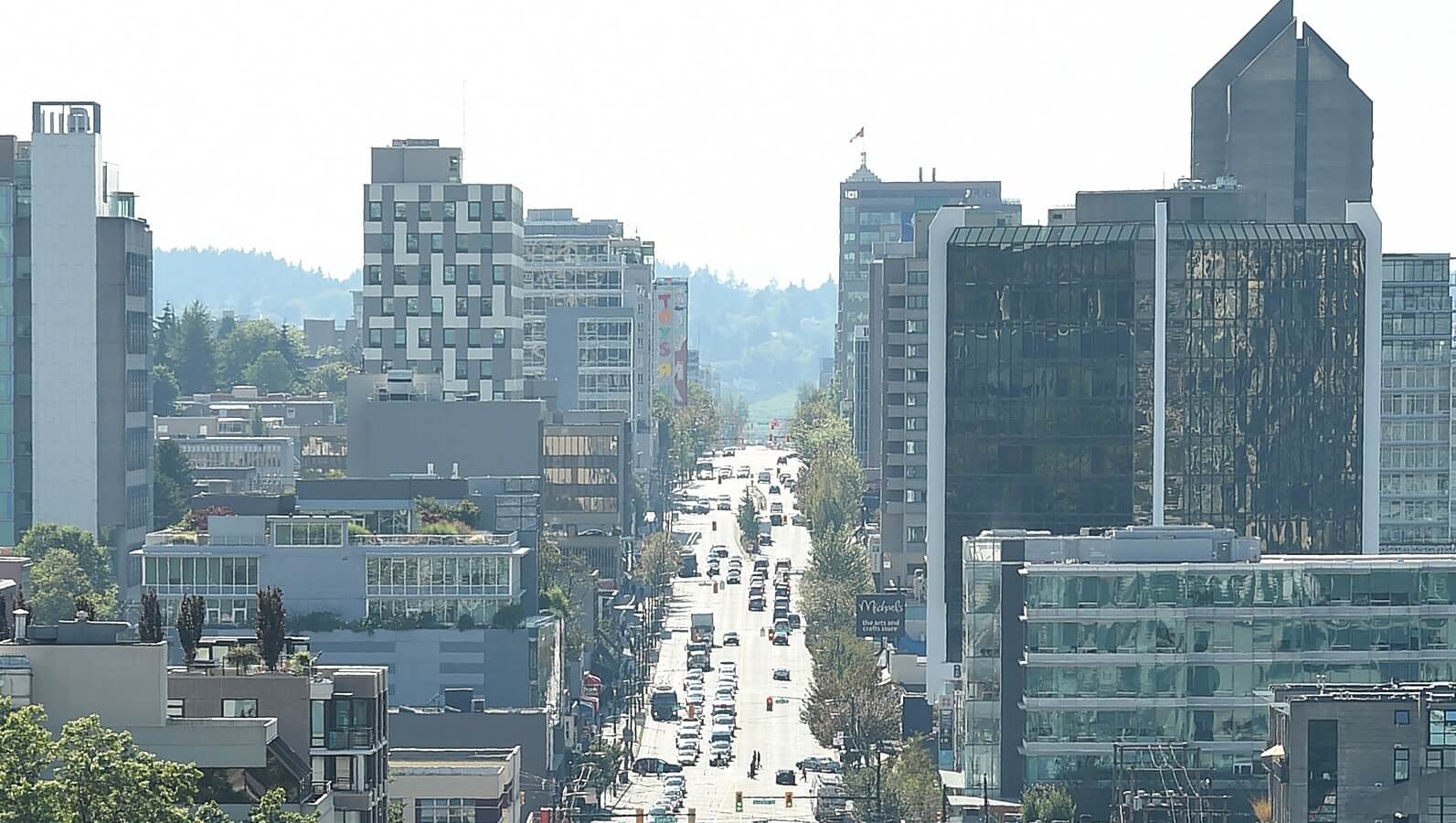
May 30, 2022: Broadway Plan polarizes Vancouverites
For three days 160 Vancouver residents spoke to Council about the Broadway Plan, and the results show a city divided. With about another 30 speakers still to be heard, the schism is clear: on one side are those who believe the Plan calls for excessive change and ignores the voices of neighbourhoods; and the other side — young people who have the backing of organized groups like Abundant Housing, biking groups, and the development industry — who say the Plan doesn’t go far enough.
Council has a tough decision ahead of them to either accept, amend or reject the major planning blueprint for the future of the Broadway Corridor, a scheme that has taken staff over three years to complete. The Broadway Plan, already a densely populated area that includes 500 blocks surrounding the coming Millennium Line subway, envisions adding about 50,000 new residents in the next 30 years. Staff have proposed towers anywhere from three (low-rise) to 40 (at subway stations) storeys in most areas along Broadway, from Clark Drive to Yew Street, and from 1st Avenue to 16th.
Theresa O’Donnell, head planner for the City, called the Broadway Plan a “generational plan” that will likely bring discomfort to some. O’Donnell said there has been broad support for the Plan and that the public has had several chances to be involved in the planning process.
But that’s not what Council heard over three days of meetings. Opponents talked about the lack of engagement between the planners and neighbourhoods (residents were not asked their views about the height or built form of towers, which were only made public in the final draft plan). Dunbar resident Carol Volkart reflected on her community’s past planning involvement with the City, when she and her neighbours collaborated on their own community plan involving input from 1,600 neighbours. “Residents could be trusted” then, Volkart said, “their opinions mattered” to the City.
Vancouver resident Mark Battersby, Professor Emeritus at Capilano University and author of Is That a Fact? said the City surveys use “bogus methodology” that has nothing to do with science. He told of his experience attending a Broadway Plan presentation, where staff were trying to convince residents of one particular point of view while offering no alternatives.
Critics of the Plan predict widespread displacement of tenants living along Broadway, home to some of the most affordable rents in the city.
A recurring theme over the past three days of meetings is a growing lack of trust that the City would meet its own commitments to residents. Even with Mayor Kennedy Stewart’s beefed-up tenant protection plan, many renters say they can’t trust government to provide the help they need. The Mayor’s plan has been widely rebuked, even by the Vancouver Tenants Union.
David Webb, a renter in Fairview, said if housing affordability is the goal of the plan, why not keep what [older, affordable units] we have now? He said he and his neighbours don’t want to leave their community and move into new smaller apartments. “Renters stand only to lose. It’s a terrible plan, awful,” said Webb, arguing that the Plan will negatively affect renters for decades to come. Another speaker echoed Webb’s comments: “This isn’t a plan for renters. When I look at it, I don’t see development, I see displacement.”
Regarding the huge increase in density planned for the area, one speaker complained he didn’t want to “live in Manhattan.” Vancouver, he said, “needs to be treated with kid gloves. The Broadway Plan is a sledgehammer.”
Noting that the city’s population has grown by about one percent a year since 1986, retired architect Brian Palmquist called the envisioned density “a growth ponzi scheme.”
Others criticized the lack of amenities planned for the area, such as schools, community centres, seniors’ services, and parks. Although one in five Vancouver seniors live in the Broadway area, the Plan makes no mention of the need for seniors housing or amenities.
Supporters said Vancouver needs thousands of new homes now, preferably starting in the city’s low-density neighbourhoods, and that more commercial businesses should be built off-arterials. Some complained that the work should have started yesterday. “I was born after ’86 and I don’t have time for all the dithering, one speaker told Council. He pointed out that 3,600 citizens completed the Broadway Plan survey and over 50 percent of people said the Broadway Plan could make their lives better.
Most developers who called in expressed basic support for the plan, with some minor adjustments. Outspoken critic Patrick Condon, who teaches Urban Design at UBC, said the Broadway Plan deserves more than one consultant. He encouraged the City to meet with outside planners who can share ideas on how the Plan can be improved, particularly when it comes to housing affordability.
Whether or not the Plan can deliver housing affordability and livability has always been the burning issue at City meetings. The Broadway Plan envisions market rental apartments will make up 80 percent of the new housing, with 20 percent assigned to below-market rates. Many Councillors struggled with that number at the meeting, and asked speakers for ideas on how more affordable housing could be delivered.
Council will hear from the remaining speakers on Tuesday, May 31 from 3 to 10 pm, with a possible decision the same day or in early June. We will update you with the outcome.



No Comments